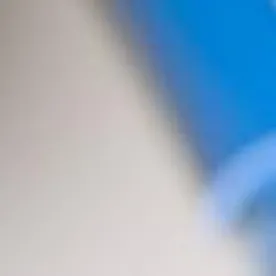In a Special Open Door Forum phone call today, CMS representatives announced that it has identified a potential exception to the “two-midnight rule” establishing requirements for admitting Medicare patients as inpatients to hospitals. CMS published the rule (42 CFR Section 412.3) in August 2013. In short, the rule states that in order for a hospital stay to be treated as inpatient for Medicare payment purposes, there must be: a formal physician (or other authorized clinician) order for inpatient admission; and a documented expectation that the patient will need hospital services for a time period that spans two midnights. (Patients receiving services on the “inpatient only” list may be admitted regardless of the expected length of stay.)
During its call today, CMS stated that it has identified the following potential exception to the two midnight rule:
Mechanical Ventilation Initiated During Present Visit: CMS stated in its discussion of rare and unusual circumstance that treatment in an Intensive Care Unit, by itself, does not support an inpatient admission absent an expectation of medically necessary hospital care spanning 2 or more midnights. Stakeholders have notified CMS that they believe beneficiaries with newly initiated mechanical ventilation support an inpatient admission and Part A payment. CMS believes newly initiated mechanical ventilation to be rarely provided in hospital stays less than 2 midnights, and to embody the same characteristics as those procedures included in Medicare’s inpatient –only list. While CMS believes a physician will generally expect beneficiaries with newly initiated mechanical ventilation to require 2 or more midnights of hospital care, if the physician expects that the beneficiary will only require one midnight of hospital care, inpatient admission and Part A payment is nonetheless generally appropriate.
NOTE: This exception is not intended to apply to anticipated intubations related to minor surgical procedures or other treatment.
This exception is included to an update to CMS’s frequently asked two midnight questions document found at: http://cms.hhs.gov/Research-Statistics-Data-and-Systems/Monitoring-Programs/Medical-Review/InpatientHospitalReviews.html.
During today’s call, CMS representatives emphasized that the two-midnight rule requires a documented physician expectation that:
-
the patient has a need for care that may be delivered only in a hospital; and
-
the patient’s condition requires a stay that spans at least two midnights.
Severity of illness or intensity of service standards are not directly pertinent to whether an inpatient admission is appropriate. Rather, the rule requires first that the physician has a reasonable expectation at the time of admission that a patient needs hospital care (regardless of severity of illness or the intensity of services to be provided) and second, the care must span at least two midnights. If those criteria are met and appropriately documented, CMS stated that its contractors have been instructed not to review such cases.
CMS representatives said that severity of illness and intensity of services criteria may be useful in determining whether a patient needs hospital care, but as noted, do not in themselves dictate when inpatient admission is appropriate. So even though a patient may need intensive services (for example, those that are rendered only in an intensive care unit), but the admitting doctor does not believe the patient’s stay will span at least two midnights, inpatient status is not appropriate.
If a physician is not sure that a two-midnight admission is necessary at the time the patient is admitted, CMS advises that the patient should be treated as outpatient observation until admission criteria are clearly met.
CMS expects to issue further two-midnight rule guidance in the near future.



 />i
/>i
